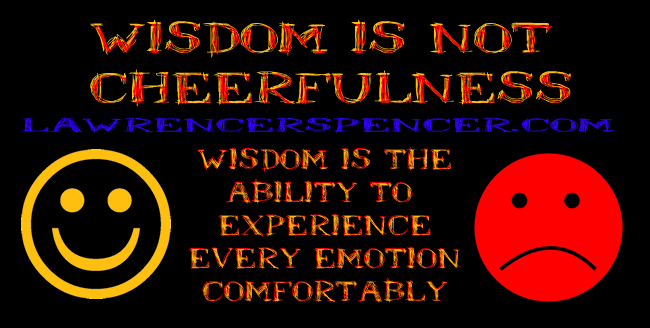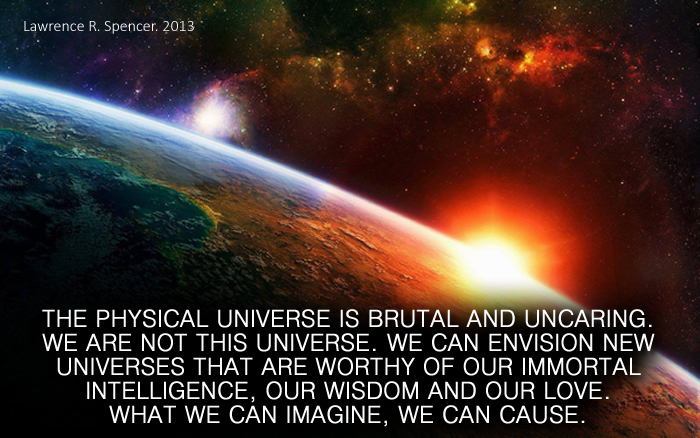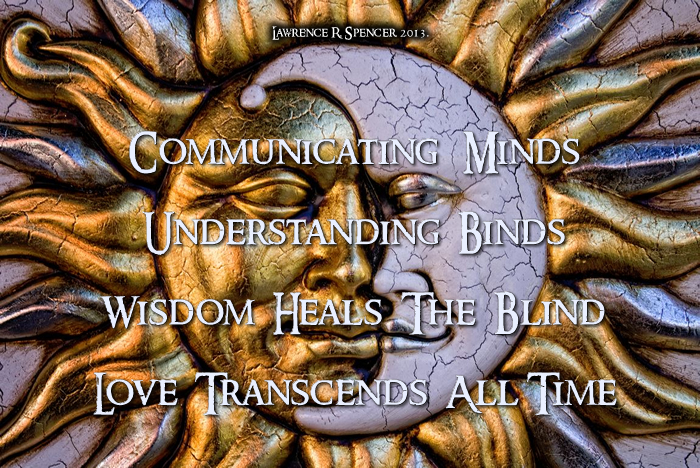Republished by Blog Post Promoter
Tag Archives: wisdom
WISE WATTERSON WORDS
Republished by Blog Post Promoter
This graphic and the following article are reposted from ZenPencils.com (http://zenpencils.com/comic/128-bill-watterson-a-cartoonists-advice/)
Bill Watterson is the artist and creator of (in my humble opinion) the greatest comic strip of all time, Calvin and Hobbes. I was a bit too young to appreciate it while it was originally published from 1985-1995, but I started devouring the book collections soon after. I think my brother had a few of the treasury collections and I must have read those dozens of times. I was hooked, and I remember copying Watterson’s drawings relentlessly as a kid (Calvin’s hair was always the hardest to get right).
To me, Calvin and Hobbes is cartooning perfection – that rare strip that has both exquisite writing AND gorgeous artwork. A strip that managed to convey the joy of childhood, absurdity of humanity and power of imagination all through the relationship between a boy and his stuffed tiger. And most importantly, a strip that was consistently laugh-out-loud funny. I flick through my Calvin and Hobbes books a few times a year, not to read them cover to cover anymore, but just to get lost in Calvin’s world for awhile and to remind myself what comics are capable of.
Besides the fact that Calvin and Hobbes is the comic I cherish above all others, Bill Watterson is my biggest creative influence and someone I admire greatly as an artist. Here’s why:
• After getting fired as a political cartoonist at the Cincinnati Post, Watterson decided to instead focus on comic strips. Broke, he was forced to move back in with his parents and worked an advertising layout job he hated while he drew comics in his spare time. He stayed at this miserable job and submitted strips to comic syndicates for four years before Calvin and Hobbes was accepted. About this period Watterson wrote: “The only way to learn how to write and draw is by writing and drawing … to persist in the face of continual rejection requires a deep love of the work itself, and learning that lesson kept me from ever taking Calvin and Hobbes for granted when the strip took off years later.”(Also see the Advice for Beginners comic.)
• Watterson sacrificed millions (probably hundreds of millions) of dollars by never licensing and merchandising Calvin and Hobbes. He went through a long and traumatic fight with his syndicate over the licensing rights, and although he eventually prevailed, Watterson was so disillusioned with the industry he almost quit cartooning. “I worked too long to get this job, and worked too hard once I got it, to let other people run away with my creation once it became successful. If I could not control what my own work was about and stood for, then cartooning meant very little to me.”
• Luckily Watterson didn’t quit and took a sabbatical instead. Eager to reinvigorate his creative mojo on his return, Watteron proposed a radical new layout for his colour Sunday strips. For those not familiar with comic strip lingo, each week a newspaper comic will have six ‘daily’ strips (usually black and white, one tier, 3-4 panels) and one ‘Sunday’ strip which is larger and in colour. Previously, the Sunday strip was comprised of three tiers of panels and looked like this. The layout was restrictive and the top tier had to be completely disposable because a lot of newspapers would cut it and only run the bottom two tiers in order to save space so they could cram in as many comics (or puzzles, or ads) as they could.
Watterson was sick of the format restraints and wanted more space to experiment and push his storytelling ability so he (with his syndicate’s support) gave newspaper editors a ballsy proposition. They would have to publish his Sunday comics at a half-page size with no editing, or not publish it at all. By this time Calvin and Hobbes had been running for over five years and was extremely successful so Watterson had the clout needed to pull this move off. Despite fearing many cancellations, he was pleasantly surprised that most newspapers supported the change. Free of the shackles of tiers and panel restrictions, Watterson gave us visually exciting and beautiful strips that hadn’t been since the glory days of newspaper comics in the 1920s and 30s. He was free to create strips like this, and this andthis. “The last few years of the strip, and especially the Sundays, are the work I am the most proud of. This was close as I could get to my vision of what a comic strip should be.”
• After working on the strip for 10 years, when Calvin and Hobbes was at the height of its popularity and was being published in over 2,000 newspapers, Watterson stopped. He had given his heart and soul to one project for 10 years, had said all he wanted to say and wanted to go out on top. “I did not want Calvin and Hobbes to coast into half-hearted repetition, as so many long-running strips do. I was ready to pursue different artistic challenges, work at a less frantic pace with fewer business conflicts, and … start restoring some balance to my life.”Since retiring the strip, Watterson has pursued his interest in painting and music.
It’s pretty incredible when you think about. Could you say ‘no’ to millions, I repeat, MILLIONS of dollars of merchandise money? I don’t know if I could. Would you stop creating your art if millions of people admired your work and kept wanting more? I don’t know if I would.
Reprints of Calvin and Hobbes are still published in over 50 countries and the strips are as fresh and funny as they were 20-25 years ago. It has a timeless quality and will continue to entertain comic fans for generations to come. Great art does that.
– The quote used in the comic is taken from a graduation speech Watterson gave at his alma mater, Kenyon College, in 1990. Brain Pickings has a nice article about it. The comic is basically the story of my life, except I’m a stay-at-home-dad to two dogs. My ex-boss even asked me if I wanted to return to my old job.
– My original dream was to become a successful newspaper comic strip artist and create the next Calvin and Hobbes. That job almost doesn’t exist anymore as newspapers continue to disappear and the comics section gets smaller and smaller, often getting squeezed out of newspapers entirely. I spent years sending submissions to syndicates in my early 20s and still have the rejection letters somewhere. I eventually realised it was a fool’s dream (also, my work was nowhere near good enough) and decided webcomics was the place to be. It’s mouth-watering to imagine what Watterson could achieve with webcomics, given the infinite possibilities of the online medium.
– My style is already influenced by Watterson, but this is the first time I’ve intentionally tried to mimic his work. It’s been fun poring through Calvin and Hobbes strips the past week while working on this comic and it was a humbling reminder that I still have a long way to go.
– The quotes I’ve used in the write-up above are taken from the introduction to The Complete Calvin and Hobbes collection, which sits proudly on my desk.
– Thanks to Marlyn, Emily, Joseph, and Suchismita for submitting this speech.
HOW MANY BOOKS HAVE YOU READ?
Republished by Blog Post Promoter
In human experience, written symbols (letters, numbers, musical signs, etc. ) are physical representations of an idea or thought. Symbols organized into sentences, songs, compositions, formula, articles or books convey many complex ideas. These symbols enable communication between people in the physical universe. Although there a many forms of non-physical communication which we refer to as “emotion” or “telepathy” or “empathy” or “intuition” or “knowing”, the common denominators of human experience or culture is often expressed in books. When these have been read, understood and compared to other thoughts, we can assume points of view of the various universes we inhabit. When we agree on a our perception of these universes, we call this “reality”.
Which books have helped to shape your reality? How many books have your read in your life, so far? How many more books are on your “must read” list? According to Google, that is busily scanning every book they can get their digitizing hands on, there are about 130 million book titles in the world. There are more than 2 million NEW book titles published every year (in all languages) . There are approximately 8 billion people in the world. That is more than 65 book titles per every person in the world. So, theoretically every person needs to read a minimum of 65 books to reach an “average” level of literacy. Of course this does not include the avalanche of words available to read that have not been organized into an actual book title, like Twitter and Facebook posting, newspaper and magazine articles and other “non-literature” such as scientific papers, and school textbooks and other propaganda published by governments and corporations.
The largest bookseller on-line is Amazon.com, which has an inventory of only about 1,750,000 titles in English. That’s only 13 percent of all the book titles in the world! This a critically small number of books available to read. How can one possibly consider themselves to be a literate person? This does not even include the fact that the majority of books written in the ancient world (prior to 400 AD) were burned by the Christian church! If you read one book every week 50 for years you would have read only 2,600 books! According to Google, the average book is 300 pages. That’s about 75,000 words per book.
As a writer, I am also a reader. I have often read several books each week during the 50+ years of my reading life, as well as a lot of printed material, etc.. All together I estimate I’ve read about 4,000 books, so far. That’s a lot of words — not including the millions of words on the internet — that are not in the form of a book. Fortunately, there are more than 100,000 book titles available as spoken books — narrated for you by professional actors — on Audible.com, Librivox.com and sites on the internet. Now, I can “read” a book with my ears, instead of my eyes, a fact that I appreciate more and more as I grow older. I can “read” while I’m walking, driving, jogging, cooking, cleaning, waiting and doing a lot of things that would prevent me from reading with my eyes. It’s a wonderful age we live in!
So, how do we select the most cherished, life-giving, knowledge-quenching word droplets from the ocean of words? Having read more than my share of books I can say without any doubt that reading a lot of books does not make a person “smart”, or “wise”, or “literate”. However, for me, reading books is usually a more gratifying experience, mentally and spiritually, than watching television or movies or videos. Books are usually more thoroughly researched, planned, crafted, edited and perfected than other forms of communication.
In this electronic age, when more books are available to us — thanks to digital technology — than during all of the history of humankind combined, can we expect that humanity would be more well informed and intelligent that ever before? Books themselves are not wisdom. If books are not read by people, the knowledge contained in them remains hidden. They might has well not have been written.
My personal recommendation for your reading or listening book list are the books I’ve written, of course. My view of “reality” is different than most. My universe is unique, as is yours. I invite you to share my universe, through my books.
— This blatant self-endorsement is brought to you by Lawrence R. Spencer —
NEW UNIVERSES
Republished by Blog Post Promoter
THE PHYSICAL UNIVERSE IS BRUTAL AND UNCARING. WE ARE NOT THIS UNIVERSE.
WE CAN ENVISION NEW UNIVERSES THAT ARE WORTHY OF OUR IMMORTAL INTELLIGENCE, OUR WISDOM AND OUR LOVE.
WHAT WE CAN IMAGINE, WE CAN CAUSE.
— lawrence r. spencer. 2013. —
SPIRIT FRIENDS
Republished by Blog Post Promoter




